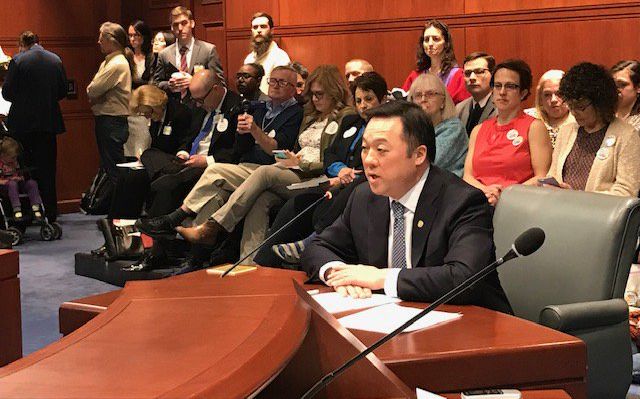Processing Your Payment
Please do not leave this page until complete. This can take a few moments.
- News
-
Editions
View Digital Editions
Biweekly Issues
- May 13, 2024
- April 29, 2024
- April 15, 2024
- April 1, 2024
- March 18, 2024
- March 4, 2024
- February 19, 2024
- February 5, 2024
- January 22, 2024
- + More
Special Editions
- Lists
- Viewpoints
- HBJ Events
- Business Calendar
- Custom Content
CT’s Tong joins other AGs opposing Trump’s overtime rule changes
 Photo | Office of the Attorney General
Attorney General William Tong.
Photo | Office of the Attorney General
Attorney General William Tong.
Connecticut Attorney General William Tong announced Friday he’ll join more than a dozen other state attorneys general in opposition to a Trump Administration proposal to roll back federal overtime protections.
The Department of Labor (DOL) proposal would adjust policy that determines whether or not certain employees may be exempted from receiving overtime pay. Specifically, it would change the "white-collar" exemptions under the Fair Labor Standards Act (FLSA). Under the current DOL rule, those employed in executive, administrative, and professional “white-collar” positions and who receive a fixed salary and are paid a certain amount of money are generally exempt from overtime protections available under the FLSA.
In 2016, the DOL raised the salary that would exempt a white-collar employee from receiving overtime from $455 per week to $913 per week, Tong’s statement said. The policy includes automatic increases to that amount every three years.
The Trump Administration DOL proposal, Tong said, would reduce the overtime exemption pay level to $679 per week, and get rid of the automatic increase.
That change, Tong said, would eliminate overtime pay for more than 8 million workers across the country. Tong signed onto a comment letter with other attorneys general detailing states’ concerns that DOL’s weakening of the salary level test will make it harder for states to enforce labor laws, and it will lead to more FLSA violations by employers who misclassify workers as white-collar employees.
“When salary levels are set too low, workers suffer from lower incomes and longer hours,” Tong said in a statement.
Also urging the administration to abandon the proposal are the attorneys general of New York, Pennsylvania, California, Connecticut, Delaware, Illinois, Maryland, Massachusetts, Minnesota, New Jersey, New Mexico, Rhode Island, Virginia, Washington and the District of Columbia.

2022 Giving Guide
This special edition informs and connects businesses with nonprofit organizations that are aligned with what they care about. Each nonprofit profile provides a crisp snapshot of the organization’s mission, goals, area of service, giving and volunteer opportunities and board leadership.
Learn more
Subscribe
Hartford Business Journal provides the top coverage of news, trends, data, politics and personalities of the area’s business community. Get the news and information you need from the award-winning writers at HBJ. Don’t miss out - subscribe today.
Subscribe
2024 Book of Lists
Delivering Vital Marketplace Content and Context to Senior Decision Makers Throughout Greater Hartford and the State ... All Year Long!
Read Here-
2022 Giving Guide
This special edition informs and connects businesses with nonprofit organizations that are aligned with what they care about. Each nonprofit profile provides a crisp snapshot of the organization’s mission, goals, area of service, giving and volunteer opportunities and board leadership.
-
Subscribe
Hartford Business Journal provides the top coverage of news, trends, data, politics and personalities of the area’s business community. Get the news and information you need from the award-winning writers at HBJ. Don’t miss out - subscribe today.
-
2024 Book of Lists
Delivering Vital Marketplace Content and Context to Senior Decision Makers Throughout Greater Hartford and the State ... All Year Long!
ABOUT
ADVERTISE
NEW ENGLAND BUSINESS MEDIA SITES
No articles left
Get access now
In order to use this feature, we need some information from you. You can also login or register for a free account.
By clicking submit you are agreeing to our cookie usage and Privacy Policy
Already have an account? Login
Already have an account? Login
Want to create an account? Register
Get access now
In order to use this feature, we need some information from you. You can also login or register for a free account.
By clicking submit you are agreeing to our cookie usage and Privacy Policy
Already have an account? Login
Already have an account? Login
Want to create an account? Register






0 Comments